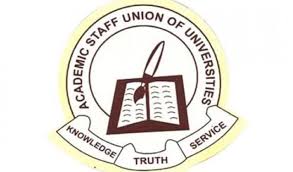A Political Economist, Professor Kingsley Moghalu, says the prolonged strike by members of the Academic Staff Union of Universities (ASUU) constituted serious infringement on the right of youth to education.
Moghalu, also a former Deputy Governor of the Central Bank of Nigeria (CBN), made the assertion in a statement on Thursday in Awka and according to him, the Universal Declaration of Human Rights states that education is a fundamental human right for everyone.
ASUU had on March 23 embarked on nationwide industrial action following the Federal Government decision to stop salaries of lecturers who have not enrolled in the Integrated Payroll and Personnel Information System (IPPIS).
ASUU, which opposed the use of IPPIS for payment of lecturers’ salaries, is also using the strike to compel the government to implement the 2009 ASUU-FGN agreement, 2012 Memorandum of Understanding (MOU) and the 2017 MoU.
Moghalu said: “Whereas industrial actions are legitimate, they become dysfunctional when they become protracted. Nigeria has had too many ASUU strikes for any meaningful university education system. But, the current strike has simply gone on for too long. That the government has allowed the current ASUU strike to continue for many months, by not reaching agreement with the lecturers, is very unfortunate. This strike has inflicted mental torture on the universities’ students, who are left to wonder when they will complete their programmes”.
Moghalu, also the Convener, “To Build A Nation”, decried the 5.6 per cent budgetary allocation for education in the 2021 appropriation, saying it was poor.
“The country has been under investing in education for years, and is far behind its comparator developing countries and emerging economies in terms of public investment in education. For instance, the allocation to education, as a percentage of Nigerian Government’s total expenditures averaged just 7.7 per cent between 2015 and 2020. In comparison, South Africa’s budgetary allocation to education was consistently above 18 per cent in the same period, rising above 20 per cent in 2020, according to data by the World Bank. This indicates that the government is not giving enough considerations to the major issue in its long history of dispute with ASUU”.
Moghalu advised the Federal Government to withdraw the 2021 Appropriation Bill and increase its allocation to education to at least 15 per cent.
He said such increment was necessary to signal the wider reforms needed to reposition the country’s education system and as well end the incessant ASUU strike.
“Education in Nigeria needs comprehensive reform such as the review of tertiary institutions’ admission criteria and standards, as well as balancing access to education with quality of education. There is the need for curriculum review to ensure priority for science, technology, vocational skills and entrepreneurship, review of educational pedagogy, massive investments in learning equipment and other educational infrastructure. Also, fundamental improvement of teachers’ pay, fundamental overhaul and strengthening of the regulation and regulatory oversight of the education sector and restoration of the culture of education as a priority value system for Nigeria”.
Prolonged ASUU Strike Infringes on Youths’ Right to Education- Moghalu
- Advertisement -
- Advertisement -
- Advertisement -
- Advertisement -
- Advertisement -

